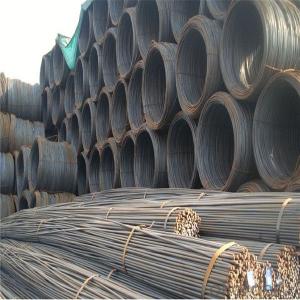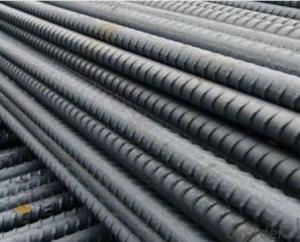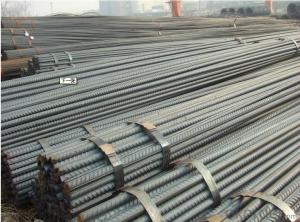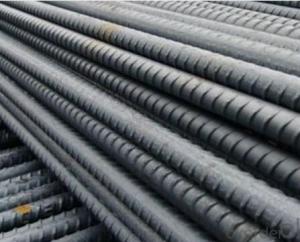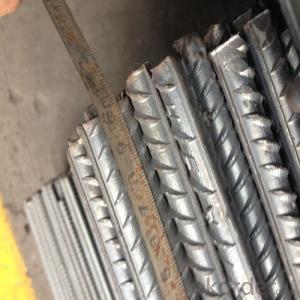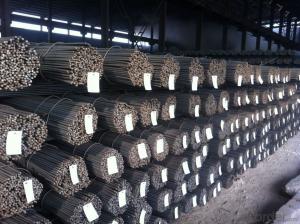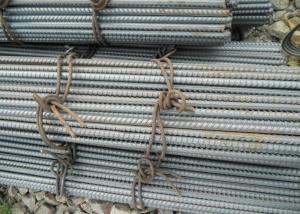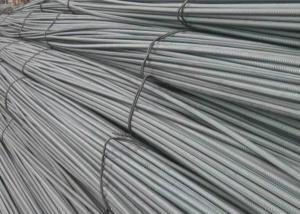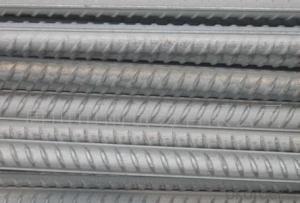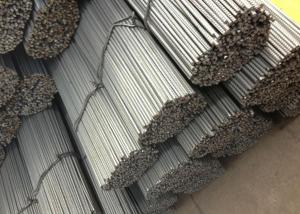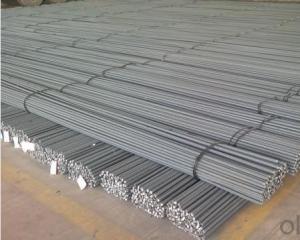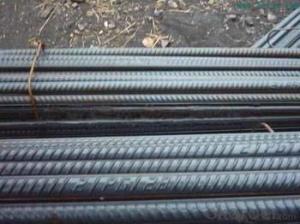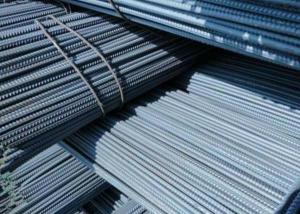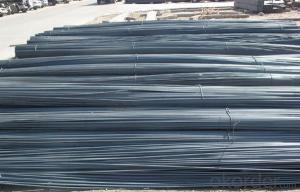Reinforced Rebar Steel for Construction building bridge road
- Loading Port:
- Shanghai
- Payment Terms:
- TT OR LC
- Min Order Qty:
- 100 m.t.
- Supply Capability:
- 19000 m.t./month
OKorder Service Pledge
OKorder Financial Service
You Might Also Like
Item specifice
Rebar (short for reinforcing bar), also known as reinforcing steel, reinforcement steel, is a steel bar or mesh of steel wires
used as a tension device in reinforced concrete and reinforced masonry structures to strengthen and hold the concrete in tension.
Rebar's surface is often patterned to form a better bond with the concrete.
Features
1、Pure steel quality, stable chemical contents, small tolerance.
2、Constant Quality, good drawing performance.
3、High dimension accuracy degree, accuracy degree of Level C up to 80%, smooth surface, less scale, easy to be pickled.
4、Automatic bundling with 4 lines by Machine in tidy and good looks
5、Big high quality percentage, small coil percentage, and heavy coil weight for Hard Coil.
6、High sorbitizing percentage.
Product Description :
Chemical composition (%): | Steel | C | Si | Mn | P | S | Ceq | ||||
HRB335 |
0.25 |
0.80 |
1.60 |
0.045 |
0.045 | 0.52 | |||||
HRB400 | 0.54 | ||||||||||
HRB500 | 0.55 | ||||||||||
Mechanical properties | Steel | Rel/ MPa | Rm/ MPa | A/ % | Agt/ % | ||||||
≥ | |||||||||||
HRB335 | 335 | 455 | 17 |
7.5 | |||||||
HRB400 | 400 | 540 | 16 | ||||||||
HRB500 | 500 | 630 | 15 | ||||||||
Package: | Standard export packing or as customer's request | ||||||||||
Application: | Construction, building, bridge, road. ect | ||||||||||
Payment terms | 1).100% irrevocable L/C at sight. | ||||||||||
Delivery time | 15-30 days after receipt of L/C or deposit by T/T | ||||||||||
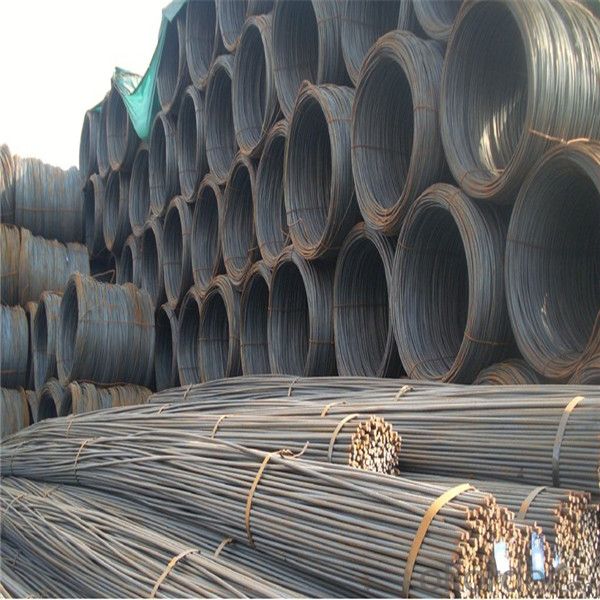
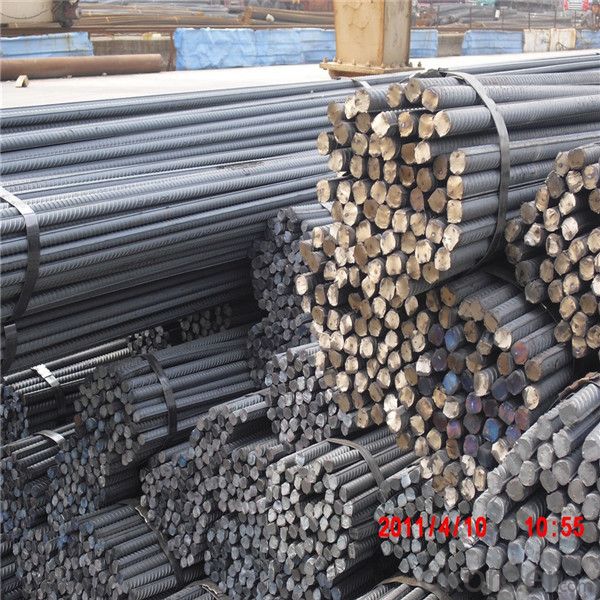
Packing:
In bundles, each bundle weight 3.5 tons. Load by container or by bulk verssel.
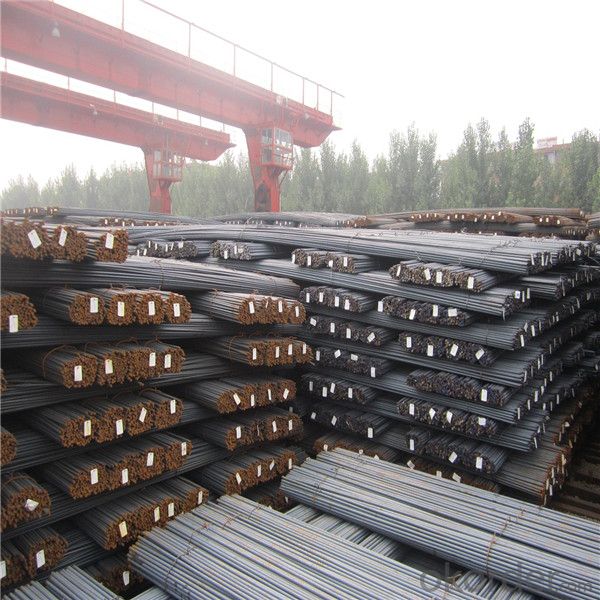
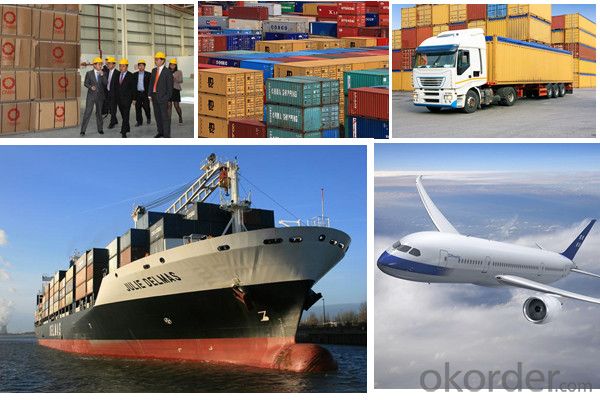
Our service
(1) We cooperate with famous factories with advanced equipment and well trained workers.
(2) We can provide factory price with trading company service.
(3) We continuously work on the improvement of our processes, guaranteeing consistently high standards
of quality to keep none compensation.
(4) We guarantee 24 hours response and 48 hours solution providing service.
(5) We accept small order quantity before formal cooperation.
(6) We deliver the agreed quality at the agreed time, reacting to changes in customer wishes in a flexible way.
(7) Due to our volume and selling power, we have excellent freight rates with shipping lines.
(8) We strive to always be fair and honest in our dealings with customers.
(9) We strive to work together with customers to achieve much more than we can achieve alone.
(10) Through our passion and commitment we aim to be a market leader in all our key markets. To maintain
our position as market leader we must continue to add value in all that we do.
FAQ:
1.Q: What's your MOQ(minimum order quantity)?
A: One full container, mixed acceptable .
2. Q: What's your packing methods?
A: Packed in bundle or bulk ..
3. Q: How can I buy CNBM products in my country?
A:Please send us an inquiry or email ,we will reply to you if there is distributor in your country
4. Q: Can we visit your factory?
A: Warmly welcome. Once we have your schedule, we will arrange the professional sales team to follow up your case.
5. Q: How long does it take to get the product if i place an order?
A:With the process of your requirements,we will pack and deliver in 3-7 days. If it is by sea shipment,it will take 15-45 days depending on different locations
- Q:How are steel rebars measured and priced?
- Steel rebars are measured and priced based on their weight and length. The weight of a steel rebar is usually measured in pounds or kilograms, while the length is measured in feet or meters. The weight of a rebar is determined by its diameter, which is typically measured in millimeters or inches. To calculate the price of a steel rebar, the weight is multiplied by the cost per unit weight. The cost per unit weight can vary depending on factors such as the type of steel used, the market demand, and the supplier. This price is usually quoted in terms of cost per pound or cost per kilogram. In addition to the weight and length, other factors may also influence the pricing of steel rebars. These can include factors such as the grade of steel, the manufacturing process, and any additional treatments or coatings applied to the rebar. It is important to note that the pricing of steel rebars can vary from supplier to supplier, so it is advisable to obtain multiple quotes and compare them before making a purchasing decision.
- Q:What does it mean to have 22 4GJ on the threaded steel?
- 4GJ22 these are the basic information of reinforcement, equivalent to the identity card information. The steel plant on behalf of grade four steel (HRB500) GJ is Hangzhou iron and then the nominal diameter is 22.
- Q:Are steel rebars suitable for use in structures with high resistance to corrosion?
- Structures with high resistance to corrosion should not use steel rebars. Although steel rebars are commonly used in construction because of their strength and durability, they can corrode when exposed to moisture and other corrosive elements. This corrosion can cause the rebars to deteriorate over time, compromising the entire structure's structural integrity. To ensure a high resistance to corrosion, it is recommended to use alternative materials such as stainless steel rebars or fiber-reinforced polymer (FRP) rebars. Stainless steel rebars contain a high percentage of chromium, which creates a protective oxide layer on the surface, preventing corrosion. On the other hand, FRP rebars are non-metallic and do not corrode, making them an excellent choice for structures in corrosive environments. When choosing the appropriate rebar material, it is crucial to consider the environmental conditions and the expected lifespan of the structure. By selecting rebars with a high resistance to corrosion, the structure's longevity and safety can be significantly improved.
- Q:Why is thread steel thinner than crude?
- Thread steel is used for the construction of reinforced concrete facilities, his material is generally low alloy steel grades is generally 16Mn (16 Mn low-alloy steel), or 45 carbon just, their yield strength is above 350Mpa, tensile strength 500Mpa, low carbon steel round steel than ordinary much higher (after heat treatment of the steel strength than low carbon steel nearly twice as high or higher)
- Q:What are the common quality control tests for steel rebars?
- Some common quality control tests for steel rebars include visual inspection for surface defects, measurement of dimensions and tolerances, tensile strength testing, bending tests, and chemical composition analysis.
- Q:What is the role of steel rebars in minimizing the risk of concrete spalling due to sulfate attack?
- Steel rebars play a crucial role in minimizing the risk of concrete spalling due to sulfate attack by providing reinforcement and increasing the overall strength of the concrete structure. When concrete is exposed to sulfate ions, it can undergo a chemical reaction that leads to expansion and cracking, resulting in spalling. However, steel rebars act as a reinforcement, helping to distribute the stress and load throughout the concrete, reducing the risk of cracking and spalling. Additionally, the presence of rebars helps to maintain the structural integrity of the concrete, preventing the ingress of sulfate ions and minimizing the potential for sulfate attack.
- Q:Can steel rebars be bent on site?
- Yes, steel rebars can be bent on site.
- Q:How do steel rebars affect the overall construction cost of industrial buildings?
- Steel rebars can significantly affect the overall construction cost of industrial buildings due to their crucial role in enhancing structural strength and durability. While the initial cost of steel rebars might be higher compared to other materials, their use can reduce the need for additional structural support, leading to potential cost savings in terms of labor, time, and materials. Moreover, steel rebars offer long-term benefits by minimizing maintenance and repair expenses, ultimately contributing to the overall cost-effectiveness of the construction project.
- Q:What is the process of anchoring steel rebars in concrete?
- The process of anchoring steel rebars in concrete involves several steps to ensure a strong and secure bond between the rebar and the concrete. First, the concrete surface where the rebar will be anchored needs to be prepared. This typically involves cleaning the surface to remove any dirt, dust, or debris that could interfere with the bonding process. It is also important to ensure that the concrete is fully cured and has reached the required strength before proceeding. Next, the rebar is cut to the desired length and shape according to the construction plans. It is important to follow the specified dimensions and placement requirements to ensure proper reinforcement and structural integrity. After the rebar is prepared, it is usually placed in the desired position within the concrete formwork. The rebar should be positioned at the correct depth and spacing as specified by the design. This is typically accomplished by using plastic or metal chairs, spacers, or tie wire to hold the rebar in place. Once the rebar is properly positioned, the next step is to secure it to the concrete. One common method of anchoring the rebar is by using mechanical anchors or rebar couplers. These devices are designed to create a strong connection between the rebar and the concrete by utilizing various mechanisms such as threading, crimping, or expansion. Alternatively, another method of anchoring the rebar is by using adhesive or cementitious grouts. These materials are applied to the rebar and then inserted into pre-drilled holes in the concrete. The adhesive or grout helps to bond the rebar to the concrete and provides additional reinforcement. Finally, after the rebar is anchored, the concrete is poured or placed around it. The concrete should be properly consolidated to ensure that it fully surrounds and encases the rebar. This can be achieved through techniques such as vibrating the concrete or using specialized equipment. Overall, the process of anchoring steel rebars in concrete involves careful planning, preparation, and execution to ensure a reliable and durable bond between the rebar and the concrete. Following industry standards and design specifications is crucial to achieve the desired structural strength and integrity.
- Q:Can steel rebars be used in structures with high sulfate content in soil or water?
- In structures that contain high sulfate levels in soil or water, it is not recommended to use steel rebars. The reaction between sulfates and steel, specifically the iron within the steel rebars, can result in corrosion and the weakening of the structure. This phenomenon, commonly referred to as sulfide attack or sulfate attack, has the potential to lead to the deterioration of the rebars and ultimately compromise the overall integrity of the structure. As a result, it is advisable to explore alternative materials such as stainless steel rebars or non-metallic reinforcement options like fiber-reinforced polymers (FRP) in order to ensure the longevity and safety of the structure.
1. Manufacturer Overview |
|
|---|---|
| Location | |
| Year Established | |
| Annual Output Value | |
| Main Markets | |
| Company Certifications | |
2. Manufacturer Certificates |
|
|---|---|
| a) Certification Name | |
| Range | |
| Reference | |
| Validity Period | |
3. Manufacturer Capability |
|
|---|---|
| a)Trade Capacity | |
| Nearest Port | |
| Export Percentage | |
| No.of Employees in Trade Department | |
| Language Spoken: | |
| b)Factory Information | |
| Factory Size: | |
| No. of Production Lines | |
| Contract Manufacturing | |
| Product Price Range | |
Send your message to us
Reinforced Rebar Steel for Construction building bridge road
- Loading Port:
- Shanghai
- Payment Terms:
- TT OR LC
- Min Order Qty:
- 100 m.t.
- Supply Capability:
- 19000 m.t./month
OKorder Service Pledge
OKorder Financial Service
Similar products
New products
Hot products
Related keywords
